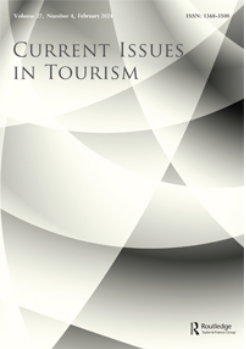公司支持在加盟商支付溢价意愿和推荐行为中的作用
IF 4.6
3区 管理学
Q1 HOSPITALITY, LEISURE, SPORT & TOURISM
引用次数: 1
摘要
摘要随着食品特许经营行业竞争的加剧,特许经营的成功与否取决于其吸引加盟商光顾的能力。本研究侧重于有助于创造积极行为结果的特许人特征。使用SmartPLS软件的偏最小二乘结构方程模型(PLS-SEM)对266家美国食品特许经营商进行了分析。研究结果显示,加盟商对信息质量、服务质量、奖励和认可以及定制的评价对感知价值的相对影响。此外,对加盟商的积极感知价值影响了他们支付溢价的意愿以及他们对加盟品牌的推荐意向。利用人口统计学特征进行的多组分析显示,信息质量和服务质量对男性和年长加盟商的感知价值的影响高于女性和年轻加盟商。相比之下,定制对女性和年轻加盟商感知价值的影响更大。本研究为制定商业战略提供了见解。关键词:加盟商;信息质量;服务质量;奖励与认可;本文章由计算机程序翻译,如有差异,请以英文原文为准。
The role of company support in franchisee willingness to pay a premium and referrer behaviour
ABSTRACTWith increasing competition in the food franchise industry, the success of a franchise operation depends on its ability to instigate franchisee patronage. This study focuses on franchisor characteristics that help in creating positive behavioural outcomes. Partial least squares structural equation modelling (PLS-SEM) using SmartPLS software is used to analyze 266 U.S. food franchisees. Findings show the relative impact of franchisee evaluation of information quality, service quality, rewards and recognition, and customization on perceived value. Also, positive perceived value in franchisees influences their willingness to pay a premium and their referrer intentions towards franchise brands. Multigroup analysis using demographic characteristics shows that the impacts of information quality and service quality on perceived value are higher in male and older franchisees than in female and younger franchisees. In contrast, the effect of customization on perceived value is greater in female and younger franchisees. This study provides insights to develop business strategies.KEYWORDS: Franchiseesinformation qualityservice qualityrewards and recognitioncustomization Disclosure statementNo potential conflict of interest was reported by the author(s).
求助全文
通过发布文献求助,成功后即可免费获取论文全文。
去求助
来源期刊

Current Issues in Tourism
HOSPITALITY, LEISURE, SPORT & TOURISM-
CiteScore
15.50
自引率
10.00%
发文量
230
期刊介绍:
Journal metrics are valuable for readers and authors in selecting a publication venue. However, it's crucial to understand that relying on any single metric provides only a partial perspective on a journal's quality and impact. Recognizing the limitations of each metric is essential, and they should never be considered in isolation. Instead, metrics should complement qualitative reviews, serving as a supportive tool rather than a replacement. This approach ensures a more comprehensive evaluation of a journal's overall quality and significance, as exemplified in Current Issues in Tourism.
 求助内容:
求助内容: 应助结果提醒方式:
应助结果提醒方式:


